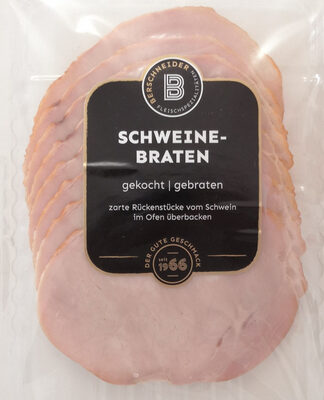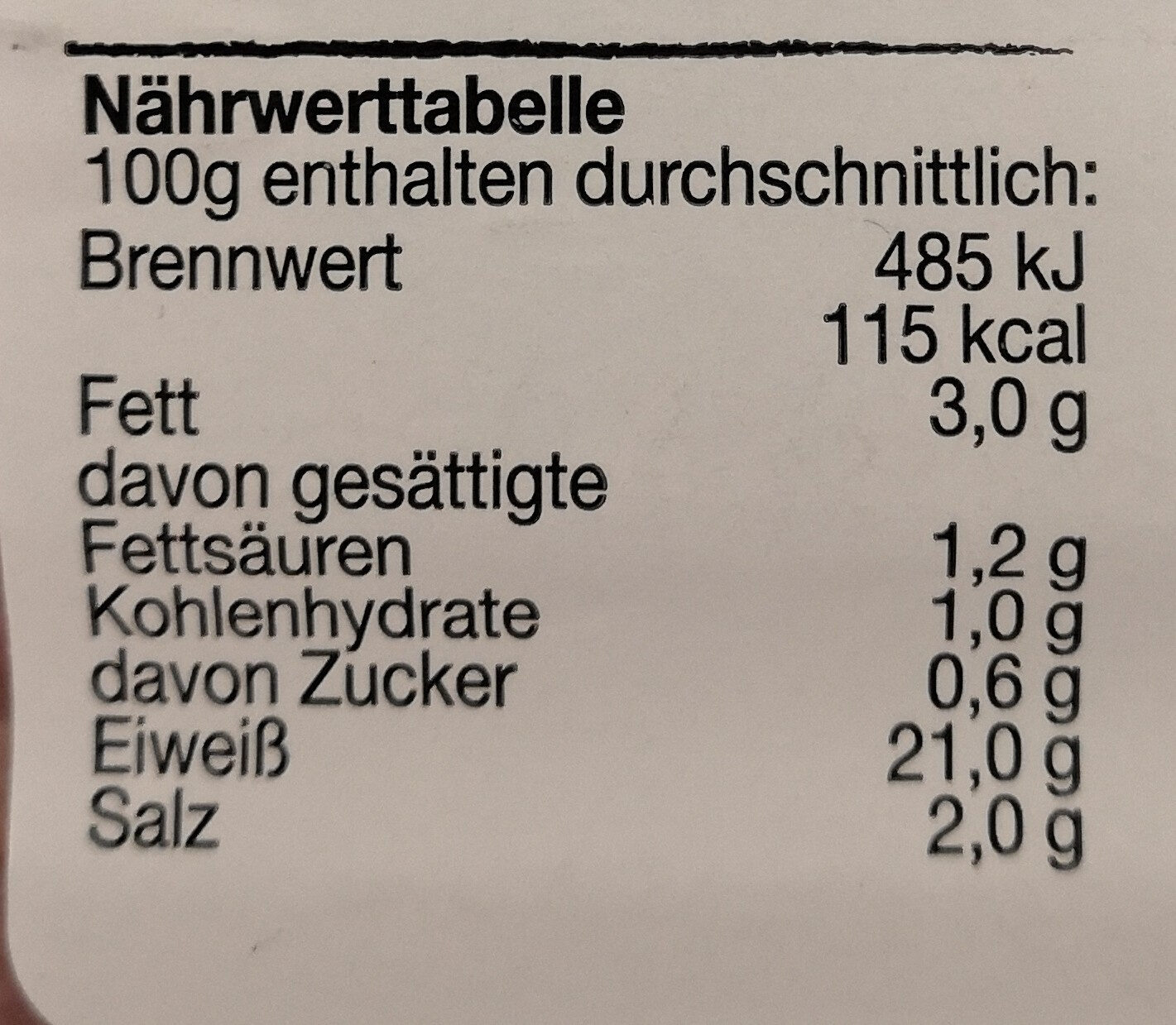Schweinebraten, gekocht, gebraten - Berschneider - 100 g
This product page is not complete. You can help to complete it by editing it and adding more data from the photos we have, or by taking more photos using the app for Android or iPhone/iPad. Thank you!
×
Barcode: 4011436020018 (EAN / EAN-13)
Common name: Schweinebraten, gegart, gebraten
Quantity: 100 g
Packaging: de:Kunststofffolie, de:Kunststoffschale
Brands: Berschneider
Categories: Meats and their products, Meats, Prepared meats, Pork and its products, Pork, Cut
Origin of ingredients: Germany
Manufacturing or processing places: Valluhn, Mecklenburg-Vorpommern, Deutschland
Traceability code: DE EV 1279 EG
Stores: NETTO
Countries where sold: Germany
Matching with your preferences
Environment
Packaging
Transportation
Report a problem
Data sources
Product added on by predatorix
Last edit of product page on by predatorix.











